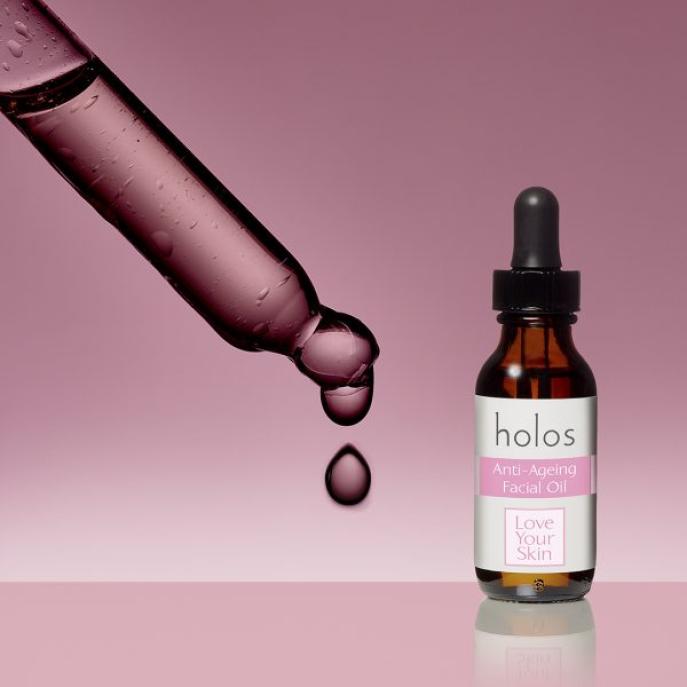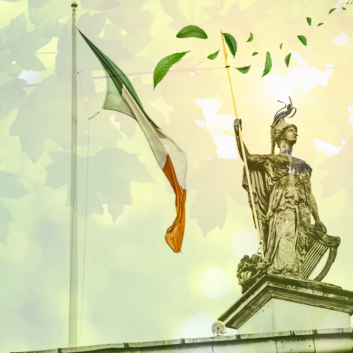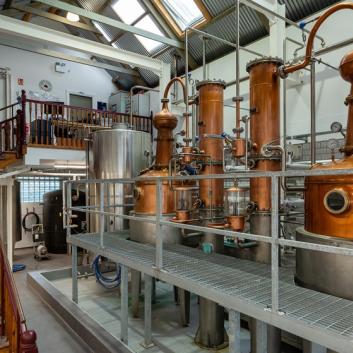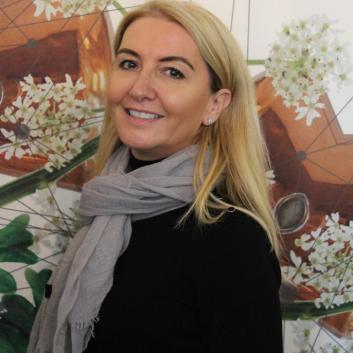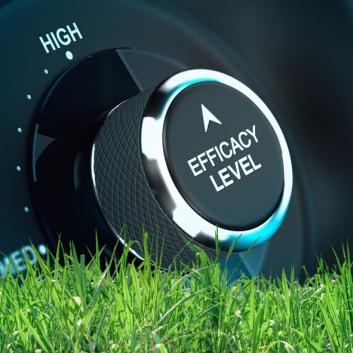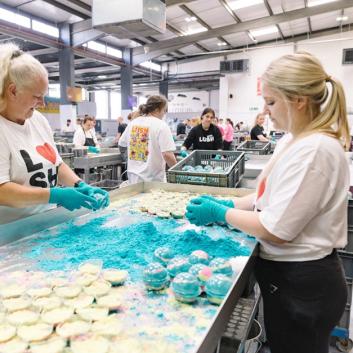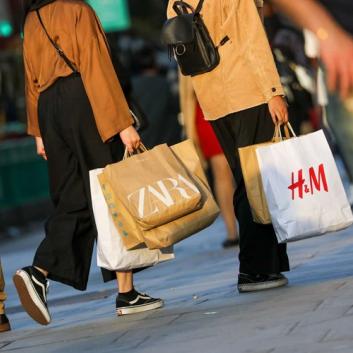Harmonising nature, science, and consciousness
The beauty industry impacts the planet in a multitude of ways.
Plastic Soup researchers analysed the ingredients in more than 7,000 beauty products and discovered that just 13 per cent were free from microplastics. Additionally, experts have discovered around 70 per cent of beauty products contain some element of palm oil, contributing to staggering deforestation around our planet.
With all this in mind, it is no surprise there have been calls for the beauty industry to go green, and the number of responsible beauty brands is growing.
Niamh Hogan, Creator and CEO of Holos Skincare, explains what inspired her to set up this innovative business:
“After years working as a Holistic Therapist and using plant oils and essential oils on clients and seeing the subtle benefits of these ingredients on their well-being, I wondered how I could encourage people to use these ingredients in everyday life."
Holos Skincare is a European brand produced in the South East of Ireland.
It is made with plant ingredients containing vitamins, minerals, essential fatty acids and antioxidants, alongside scientifically proven plant actives, chosen carefully with the environment and sustainability at the fore of all they do.

Niamh says that while they have sustainability at the heart of what they do, their main focus is always about improving the life of the consumer.
"When customers buy Holos Skincare, they get results due to the innovative ingredients we use, and they are secure in the knowledge they are making a more eco-conscious choice when it comes to skincare.”
Speaking on why it was so important for her to embed sustainability into her brand, Niamh says: “From the beginning, it was a top priority to create a brand that could provide value but not at the sacrifice of the environment.
Each decision we make has sustainability at its core, from the ingredients we use, the suppliers we work with, the materials we use for packaging and how we conduct our everyday business.
We use glass and aluminium in most of our packaging and paper-only components for shipping."
She adds that they hand-produce products, so there is minimal energy use, and they are also vegan and cruelty-free.
"However, it doesn’t end there because we are always looking for solutions to become an even more sustainable choice for our customers.”

As the green beauty and clean beauty movements continue to grow and gain momentum, it is no surprise we are seeing more brands adopting these practices to try and secure a greener future for the beauty sector.
Niamh reflects on this:
“To be successful as a beauty brand, you will not survive on sustainability alone. At the end of the day, whether you have sustainability at your core or not, if the product does not live up to the needs of the customer, it won’t be successful.”
Niamh assures that when customers shop for skincare products, they will still choose brands without an eco-focus if the products are effective.
She says: “While we have sustainability at the heart of what we do, our main focus is always about improving the life of the consumer. When customers buy Holos Skincare, they get results due to the innovative ingredients we use, and they are secure in the knowledge they are making a more eco-conscious choice when it comes to skincare.”
Niamh shares that there is a huge divide in the skincare space between what is considered ‘natural’, ‘green and ‘eco’ skincare and skincare, which is known as cosmeceutical, which is scientifically proven to benefit the skin.
She says: “Consumers usually choose one over the other based on their own needs.
Some value making an ethical choice, but when it comes to skincare, more value results. It is seldom that the two sides of skincare meet.
At Holos, we bridge the gap between ‘natural, green’ skincare and ‘cosmeceutical’ skincare. With this in mind, the consumer is no longer forced to make a choice because they get both - results and ethics.”
Whilst Holos Skincare advocates sustainability and has embedded numerous purpose-driven initiatives, they are always learning and looking for ways to improve.
Just as the phrase ‘green beauty’ is on the rise, ‘clean beauty’ has also become a trend over the past few years.
Niamh says: “Clean beauty is not a term I like. I view it as another marketing buzzword rather than focusing on what amazing ingredients a product contains. Instead, it focuses on what it doesn’t contain and using the word ‘clean’ implies other brands are somehow dirty.”
Speaking on the latest sustainability trends within the beauty industry and what she hopes will stick, Niamh shares: “Packaging is something brands are starting to look at, and the industry is obsessed with packaging.
There is huge competition to look better than the next brand, but if you go all out on packaging and your product is only mediocre, the customer won’t repurchase your products.”
She adds: “Refill isn’t a safe option for skincare, but it is a good move away from plastic for other wash and hygiene products.
Ultimately, there is a lot of greenwashing within the industry, with big brands trying to hop on the trend of being more natural, green, or eco-friendly.”






